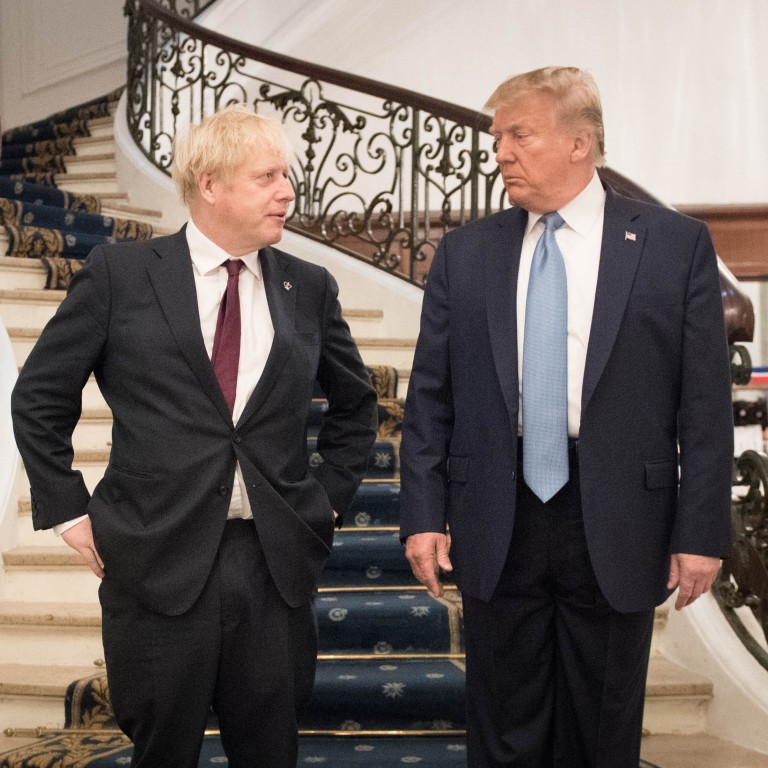
Personalities trump politics in Britain’s future with US under Joe Biden
- British Prime Minister Boris Johnson emphasises climate change in effort to strike friendly note with president-elect
- Brexit and its effect on Irish Good Friday Agreement threaten to be an early stumbling block in new relationship
Johnson’s comment on the victory of his one-time critic was more diplomatic. “The US is our important ally and I look forward to working closely together on our shared priorities, from climate change to trade and security.”
US-China tensions will remain even if Biden rejoins Paris deal, observers say
“The United States is our closest and most important ally, and that has been the case president after president, prime minister after prime minister – it won’t change,” Johnson said on the BBC. “I think there is far more that unites the government of this country and governments in Washington at any time and any stage than divides us.
“There is a huge amount of work we need to do together to protect those values – a belief in democracy, in free speech around the world, in human rights, in free trade, in the rules-based international order – all these things are currently under threat.
“I think now with President Biden in the White House in Washington we have the real prospect of American global leadership in tackling climate change.”
Johnson’s comments mirrored his government’s previous remarks on China, an issue that a high-ranking member of parliament said would render Anglo-American cooperation a necessity under Biden.

06:04
US-China relations: Joe Biden would approach China with more ‘regularity and normality’
“To Trump’s credit, the world is recalibrating its view on China, and not a moment too soon,” said Tobias Ellwood, chair of the House of Commons’ defence committee. “But his response was just confrontational, with no collective strategy to contain arguably the biggest geopolitical threat we now face.
“Biden recognises the West must advance a counterweight to stop China extending its authoritarian influence and ensnaring ever more countries into its infrastructure, technology and military programmes,” he wrote in The Daily Telegraph newspaper.
Ellwood’s view was echoed by US Senator Chris Coons, a close ally of Biden’s, who told the BBC: “I expect Joe Biden to re-energise our focus on democracy and open society in the face of challenges from Russia, China and Iran and elsewhere in the world.”
Johnson’s focus on shared values and climate change as common ground between the two country’s leaders was seen as a bid to quell concerns over his personal rapport with Trump. Both are seen in their respective societies as divisive figures stirring up nationalistic sentiments for personal political gain.
Will Johnson survive Brexit, resign or be booted from Number 10?
Apart from Biden’s opposition to Brexit, the London establishment has another concern – that of Biden’s Irish heritage and his personal special relationship with Ireland.
In the words of one Irish diplomat, Biden will be the most Ireland-friendly US president since John F. Kennedy, the only other Irish-Catholic to occupy the White House in US history. The Irish leader, Taoiseach Micheal Martin, said last week that Biden was “as Irish as you can get in terms of his background”.
Can Brexit find a way around the Northern Ireland border?
The next US president will be sworn in on January 20, less than three weeks after the transition period ends for Britain to exit from the European Union. No deal has yet been reached between London and Brussels, while the EU’s top Brexit negotiator, Michel Barnier, will continue the talks in London on Monday.
“I don’t think Joe Biden will feel particularly warmly toward this British government, and they’re going to have to work very hard to change that,” George Osborne, former British chancellor of the exchequer, said on CNN.

